Fine Gael ministers set to bid to succeed Enda Kenny
- Published
- comments
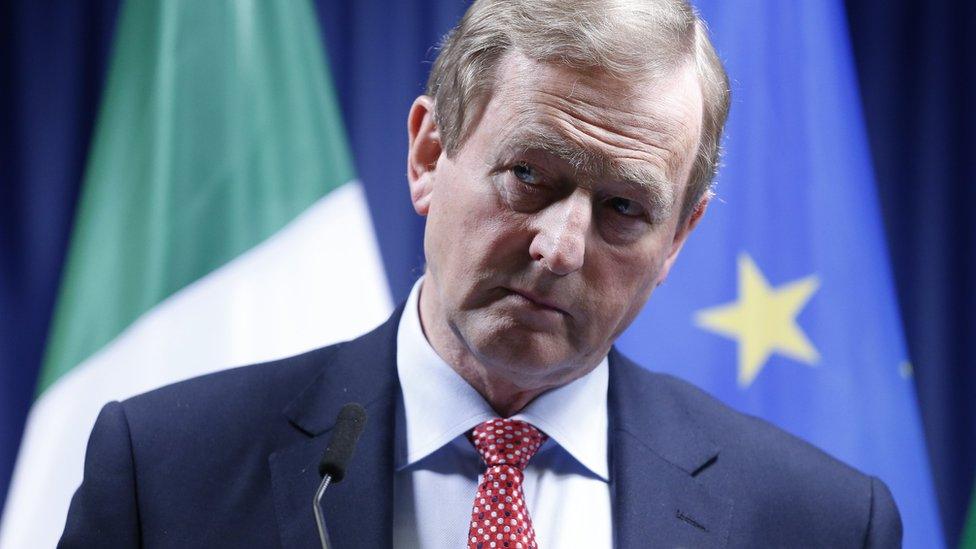
Enda Kenny led his party for 15 years and leaves as its most successful taoiseach
The process of replacing outgoing Taoiseach (Irish Prime Minister) Enda Kenny begins officially later with a meeting of his Fine Gael party.
Mr Kenny stood down as the party's leader at midnight, but will stay on as PM until his successor is chosen.
Leo Varadkar and Simon Coveney are considered favourites to lead the party but the winner would then face a Dáil (parliament) vote to become taoiseach.
The nominations deadline is expected to be 17:00 local time on Saturday.
Fine Gael's ruling body - the executive council - will meet on Thursday evening to finalise its plans for the party's leadership contest.
In order to get their name on the ballot paper, prospective candidates must secure signatures from at least eight of the 73 members of Fine Gael's parliamentary party.
The parliamentary party comprises:
Elected Fine Gael members of the Dáil (known as Teachtaí Dála or TDs)
Fine Gael members of the Seanad (Senate)
Fine Gael Members of the European Parliament (MEPs)
Mr Coveney, the current housing minister, handed in his nomination papers at Fine Gael headquarters in Dublin on Thursday, surrounded by party supporters.
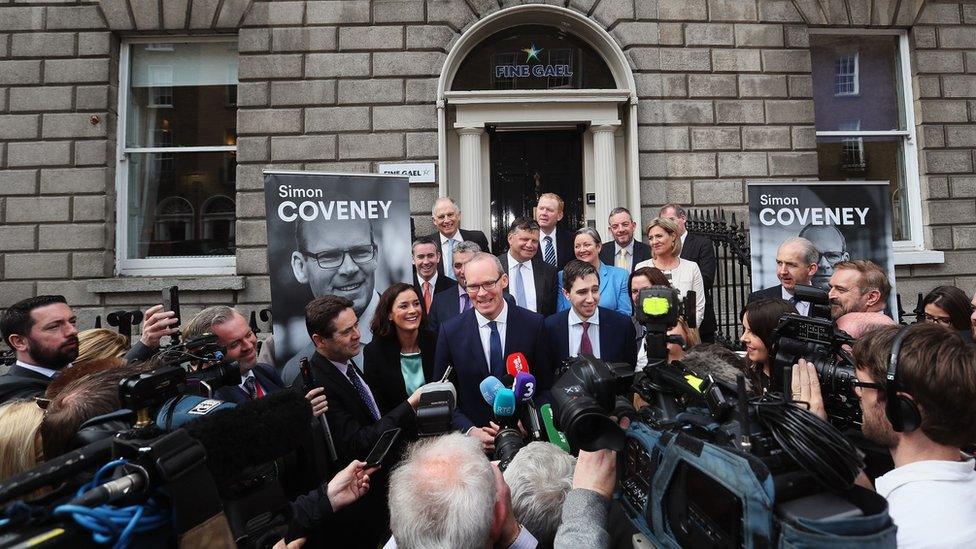
Housing Minister Simon Coveney (centre) addressed the media as he confirmed his candidacy for the Fine Gael leadership race
Mr Varadkar, the social protection minister, is expected to announce his candidacy shortly.
It looks increasingly like a two-horse race as a number of high-profile Fine Gael ministers have now ruled themselves out of the contest.
Tánaiste (Deputy Prime Minister) Frances Fitzgerald, Education Minister Richard Bruton and Minister for Foreign Affairs Charlie Flanagan have all said they will not stand for the leadership.
'Generational shift'
There had been speculation that the tánaiste and Mr Bruton could enter the race with an outside chance.
In a statement, Ms Fitzgerald, who is also the current justice minister, said she had "seriously considered" going for the job but confirmed she had now "decided that entering the contest is not the right decision for me".
She also paid tribute to Mr Kenny, saying it had been "a privilege and honour to serve at his side".
"His work on behalf of the country and our party has been immense and extraordinary," said Ms Fitzgerald.
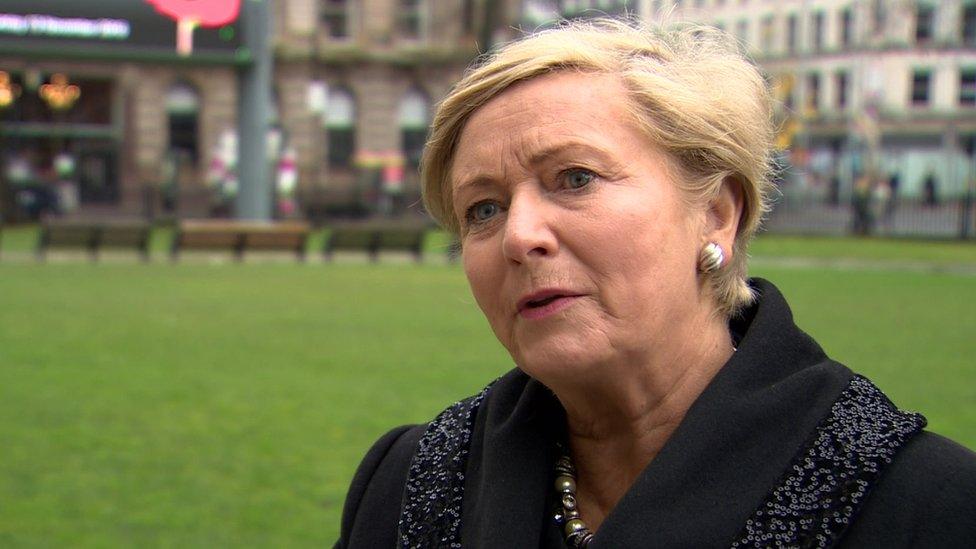
Frances Fitzgerald has confirmed she will not contest the party leadership
Confirming that he would not enter the race, Mr Bruton declared that he would now support Mr Varadkar's bid to become the next party leader.
He said he believed his friend would be a decisive, reforming leader who had the capacity to deliver change and bring people with him.
The contest will mark something of a generational shift within Fine Gael.
Finance Minister Michael Noonan, 73, has announced his decision to step down from the cabinet after the leadership vote and confirmed he would not contest the next general election.
Senator James Reilly, 61, is also stepping down as the party's deputy leader and threw his support behind Mr Coveney's leadership bid.
"I believe he has the temperament, a hardworking ethos, a sense of collegiality," said Mr Reilly.
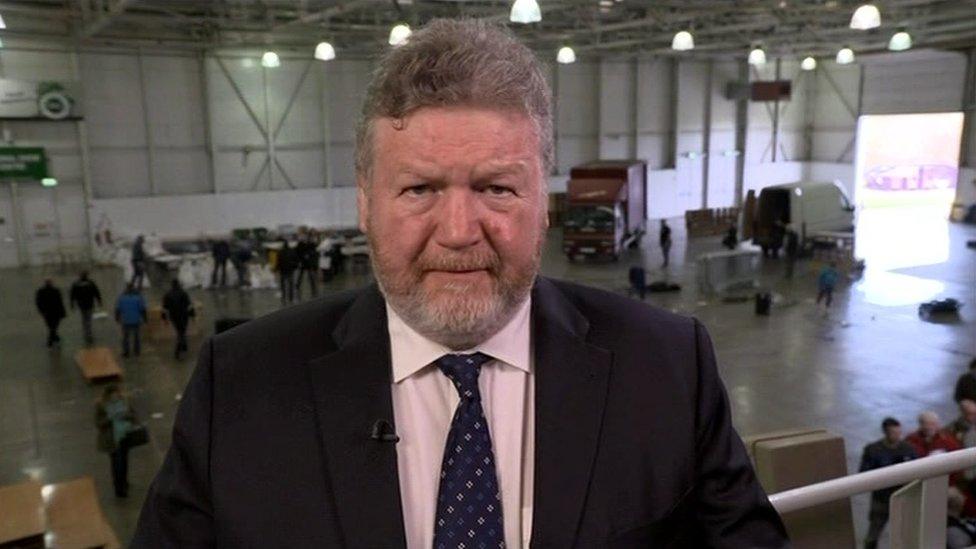
Dr James Reilly, a former health minister, is stepping down as deputy leader of Fine Gael
He added that Mr Coveney was an experienced negotiator who was "not afraid to take on the hard issues of housing and Irish Water".
There had been media speculation for months about Mr Kenny's future.
It followed a series of scandals involving An Garda Síochána (Irish police force) and the party's disappointing performance in the 2016 general election.
As he resigned, Mr Kenny asked the executive council to "expedite the process" and chose a new party leader by Friday 2 June.
Fine Gael chairman Martin Heydon said that meant the timescale would be tighter than had originally been planned, but would be manageable.
"Anybody who wants to be nominated will need 10% of the parliamentary party to nominate them, and by Saturday evening we'll know how many runners are in the field," he told Irish broadcaster RTÉ.
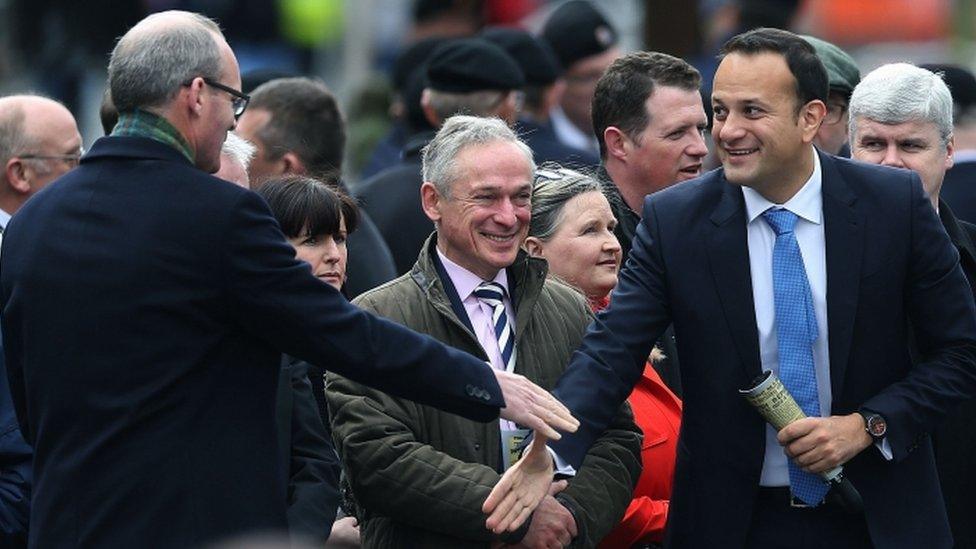
Fine Gael's Simon Coveney (left) and Leo Varadkar (right) are considered front-runners but Richard Bruton (middle) has ruled himself out
After nominations close, Fine Gael will then choose its leader through an electoral college system in which weighed votes are given to different branches of the party.
65% is allocated to members of the parliamentary party
25% is given to unelected party members
10% is allocated to county councillors
Mr Heydon said that while Fine Gael members have the power to pick the new leader of their party, Dáil TDs must then vote on whether or not they become taoiseach.
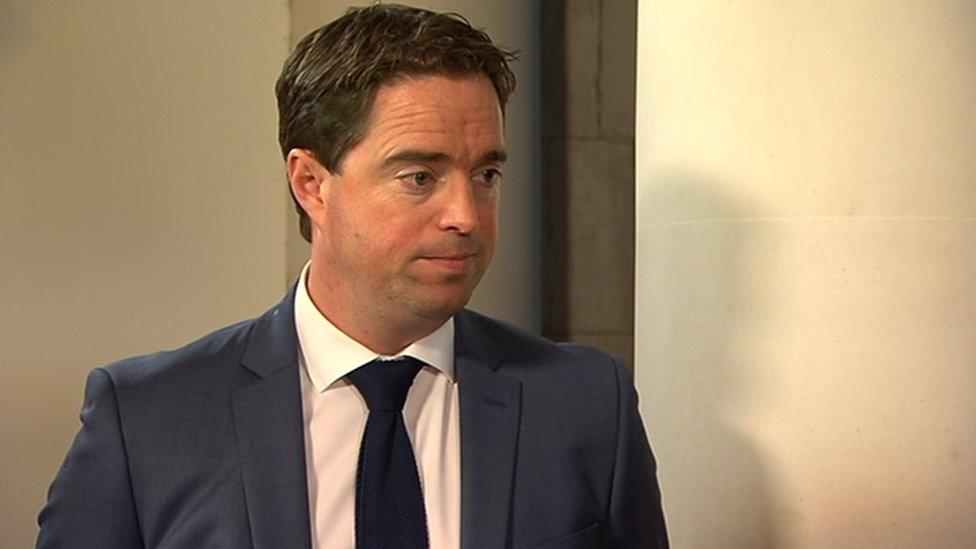
Fine Gael chairman Martin Heydon said any new leader would need 'time and space' to set out their vision for government
"If we have a new leader of Fine Gael appointed on 2 June, the Dáil doesn't sit until the following week, for the June bank holiday, so there would be a 10-day period there before the Dáil would be back."
He said the next opportunity for the Dáil to vote on a new taoiseach would be Tuesday 13 June.
'Vision'
Over the last year, Mr Kenny led a minority government, which was propped up by an alliance of independent TDs and required the support of the opposition party - Fianna Fáil - to pass its budgets.
Mr Heydon added: "We have a lot of partners in government - between the Independent Alliance, our supply and confidence arrangement with Fianna Fáil.
"And I think that it is right that a new leader coming in would be given the time and space to be able to consult all of those parties, let them known their vision and our plans, to get that process in place."
Mr Kenny leaves the Fine Gael leadership as the party's most successful taoiseach.
In a statement announcing his retirement, he said it had been a "huge honour and privilege" to lead the party over the course of 15 years.
- Published18 May 2017
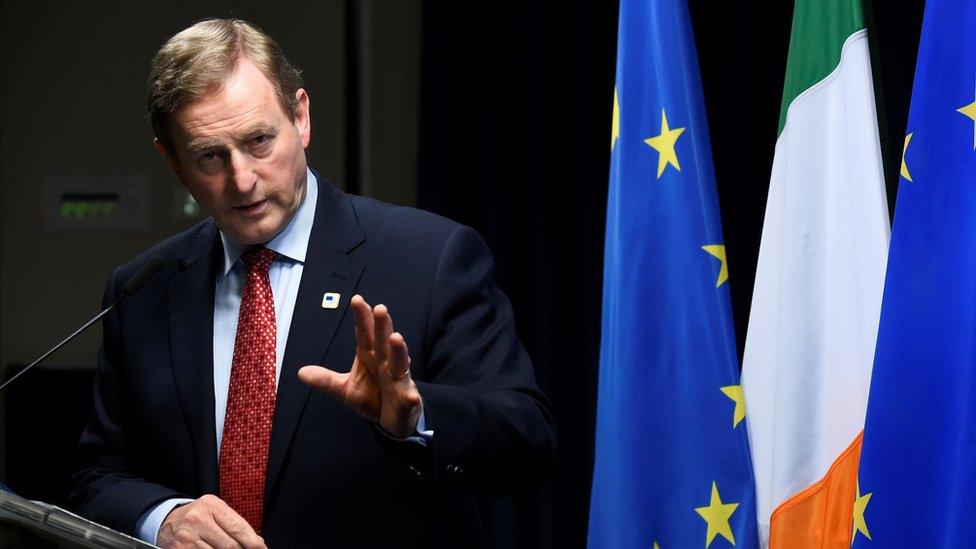
- Published17 May 2017
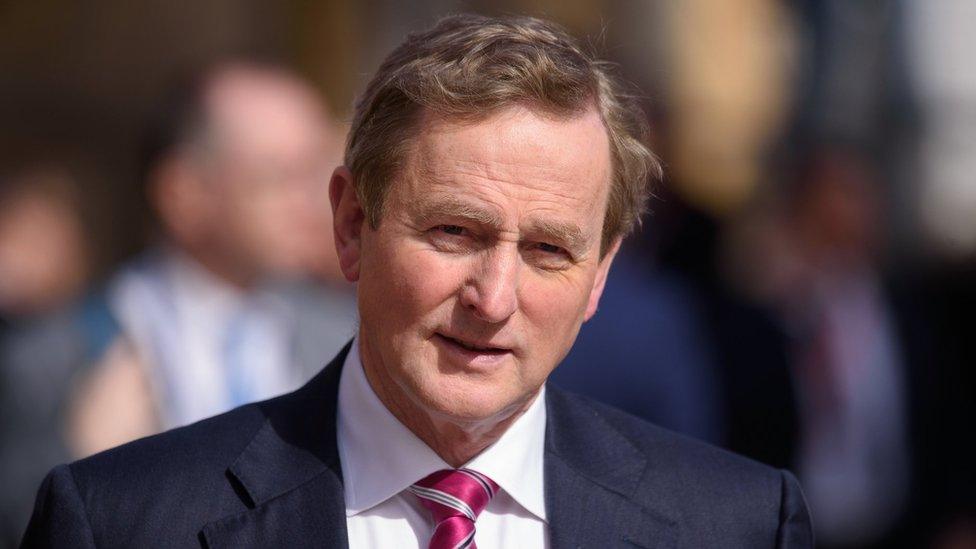
- Published17 May 2017
